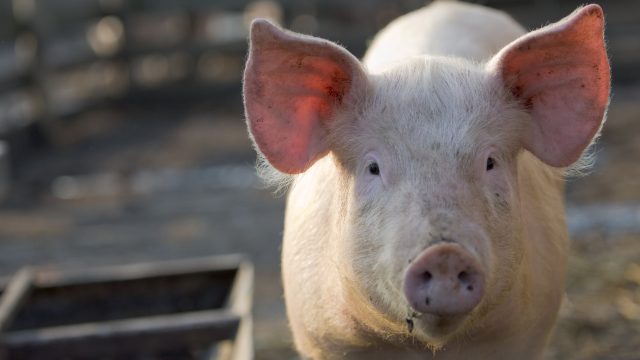
Victim Impact Statements in Cases of Animal Cruelty
A majority of states guarantee you the right, either by statute or state constitutional amendment, to submit a Victim Impact Statement as part of a criminal case against someone who injured or killed your animal. The statement will be presented in court after a defendant is convicted and prior to sentencing, and in some cases may be included in a written pre-sentence investigation report that is prepared for the judge’s use for sentencing consideration. This may be your only opportunity to tell the judge how the crime has affected you and your family. A Victim Impact Statement is typically not a formal sworn statement, like an affidavit, but 100-percent candor is always the rule in any courtroom.
If your state mandates the provision of victim services, they will usually be provided by the prosecutor’s (district attorney’s) office. Contact that office to find out the details of your rights, or read the state statutes regarding victims’ rights. For more on this, see the National Center for Victims of Crime. Usually, you can submit your Victim Impact Statement through the prosecutor’s office. Their victim’s advocate may be available to help you prepare your statement and get it forwarded to the court.
Occasionally a prosecutor may be unsympathetic to cases in which an animal was harmed, and may discourage you from making a statement. In such instances, contact the judge’s clerk to schedule the opportunity to address the court as part of the sentencing hearing. Depending on the circumstances, the Animal Legal Defense Fund may have staff available to assist you with your statement or with ensuring that your right to be heard in the case is honored.
How is the Victim Impact Statement presented in court?
Your statement may be presented in court in one of the following ways:
- written
- orally by you
- orally by the prosecutor or victims’ advocate
- occasionally by videotape
What should I include in my Victim Impact Statement?
While your statement should be as concise as possible, it is important to describe as graphically as you can the harm suffered by your companion animal, you, and your family as a result of the crime. For example, instead of stating simply that “the accused shot your dog and the dog died,” include some descriptive details such as, “the accused shot my dog in the back of the neck and the side, leaving a long trail of blood and organ pieces while my dog dragged himself, ripped open, nearly a quarter mile trying to get back home before he died heaving in my arms.”
Your statement may include:
How the crime affected your animal physically and emotionally
If he or she did not die immediately from the abuse, include:
- A list of injuries suffered. You may want to consider attaching the vet report to your statement, especially in cases in which there is a plea bargain struck and therefore no trial testimony for the sentencing judge to hear.
- What medical treatments were required and for how long?
- If your animal survived, how has his or her demeanor changed? For example, if your animal has become fearful or aggressive, you can compare that with his or her usual behavior before the crime happened, and discuss the ways in which he or she acts differently now.
- In some jurisdictions, it may appropriate to phrase these observations in terms of impacts on your animal directly. In others, it may be most useful to phrase them in terms of how you experience life with your animal differently. The prosecutor handling the case, as well as your victims advocate (if the court has one) can provide you more guidance on this.
How the crime affected you physically and emotionally
It may be helpful to include a few family photos along with statements about:
- Are you unable to do some activities you used to do?
- How has loss of companionship affected you?
- Has there been a noticeable effect on other animals in the household?
- Did you miss work?
- Have you experienced anxiety or depression?
- Do you have trouble sleeping?
- Did the crime make you fearful of your surroundings or mistrustful of people?
- How did grieving affect your life?
- Did you go to grief counseling?
- Have there been adverse effects on your relationships with others?
How the crime affected you financially
You may include a request for restitution along with copies of bills. Calculate expenses to date and an estimate of future expenses including:
- Veterinary expenses
- Property loss
- Lost wages
- Medical care for you or affected household members
- Counseling
- Burial/cremation
What sentence you think would be appropriate for the criminal
First, be sure your court does not frown upon suggestions for sentencing. Suggestions may include:
- Jail time or a fine — be realistic by suggesting jail time and fines within the sentencing guidelines allowed by law in your state;
- Probation – specify that it be supervised probation;
- Community service — specify that it be performed at a non-animal venue;
- Anger management or other psychiatric counseling;
- Prohibit all contact with animals;
- Prohibit contact with your animal(s) and the rest of your family.
Give reasons that support your suggestions.
Your Victim Impact Statement should NOT include a repeat of the facts already presented in court.
It is naturally tempting to reiterate important points the court has already heard. However, in order to make the best use of your Victim Impact Statement, you should focus on discussing how the crime has impacted you and your animal.
Who can see my Victim Impact Statement?
The Victim Impact Statement becomes a formal part of the court record. Basically, it is public information. The people who will most commonly see it include:
- prosecutor
- judge
- jury
- defendant and his attorney
- probation officer
To protect your privacy, put any personal information, such as your address and telephone number, on a separate cover sheet, and request that it be detached from documents provided to the defendant. If the defense attorney objects to anything in the Victim Impact Statement, the judge may discuss the statement in the courtroom.
How We Work
Related
-
Court Rules Texas Food Label Censorship Law is Unconstitutional
The law imposed unclear and vague standards on plant-based meat producers that violate the First AmendmentJanuary 29, 2026 Press Release -
State Animal Protection Laws Ranked: Oregon is #1, North Dakota #50
20th edition of ALDF state and territory ranking report highlights major advancements & trends in animal protection across the U.S.January 27, 2026 News -
Over 30 Organizations Urge USDA to Limit Federal Support for Manure Digesters
Hundreds of millions of dollars intended to cut energy costs have been funneled to costly manure digesters, benefitting the largest factory farmsJanuary 15, 2026 News



